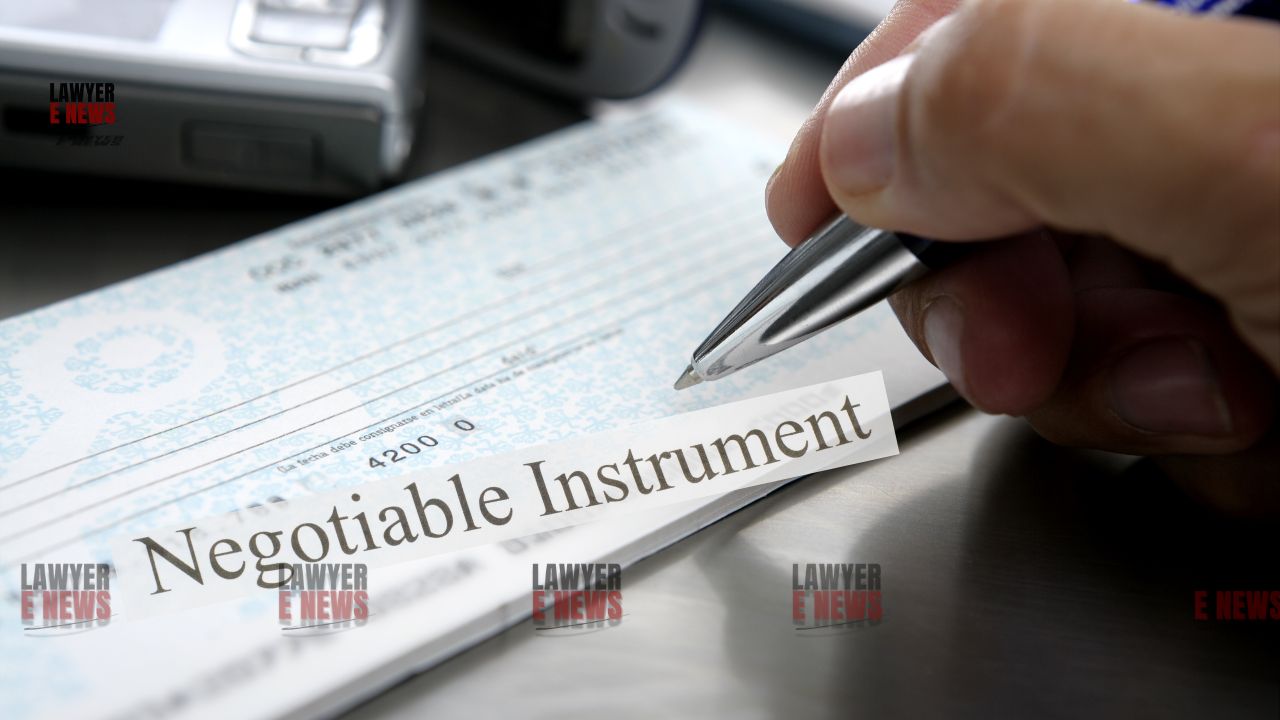-
by sayum
14 February 2026 2:22 PM



In a significant ruling, the Supreme Court has reinstated the conviction of M. Jaganathuan under Section 138 of the Negotiable Instruments Act, 1881, for issuing a cheque that was dishonored due to a closed account. The Court emphasized that disputes over the interest rate cannot nullify the enforceability of the debt, provided the principal amount remains undisputed. The judgment, delivered by a bench comprising Justices Hima Kohli and Ahsanuddin Amanullah, modifies the lower court's sentence, requiring the accused to pay a higher compensation while waiving the imprisonment due to his advanced age.
The case arose when the respondent, M. Jaganathuan, a subscriber to the Sri Sujies Benefit Funds Limited, borrowed various sums of money from the chit-fund company over several years. To partially discharge his debt of ₹21,09,000, Jaganathuan issued a cheque for ₹19,00,000, which was dishonored on the grounds that the account was closed. Following this, the chit-fund company initiated legal proceedings under Section 138 of the Negotiable Instruments Act.
The trial court convicted Jaganathuan, sentencing him to one year of simple imprisonment and ordering him to pay a fine of ₹38,00,000. However, the Appellate Court acquitted the respondent, citing discrepancies in the interest rates applied to the loan, a decision that was upheld by the High Court. The chit-fund company then appealed to the Supreme Court.
The Supreme Court highlighted that once the issuance of a cheque is established, there is a presumption under Sections 138, 139, and 118(a) of the Negotiable Instruments Act that the cheque was issued towards a legally enforceable debt or liability. The Court noted that this presumption is rebuttable, but the burden to rebut it lies on the accused, who failed to do so adequately.
The core of the respondent’s defense was the discrepancy in the interest rates mentioned in the pronotes (1.8% per month) and the Statement of Accounts (3% per month). The Appellate Court and the High Court had both relied on this discrepancy to acquit the accused. However, the Supreme Court found that such a discrepancy was insufficient to negate the legally enforceable nature of the debt, especially when the principal amount was not in dispute.
The Supreme Court also questioned the conduct of the respondent, noting that he did not take steps to retrieve the cheque or instruct the bank to dishonor it after making repayments. The closure of the bank account shortly after issuing the cheque further cast doubt on the respondent’s intentions, leading the Court to side with the complainant.
The Supreme Court underscored that the rate of interest, while relevant, does not diminish the enforceability of the principal debt. The Court noted that any dispute over the interest rate should have been addressed in an appropriate forum, and could not be used as a defense in a proceeding under Section 138 of the N.I. Act. The judgment reflects the Court’s commitment to upholding the integrity of financial transactions, particularly in cases where the evidence points to an attempt by the debtor to evade repayment through technicalities.
Justice Amanullah remarked, "The discrepancy in the interest rate does not obliterate the enforceability of the debt. The law mandates that once a cheque is issued, its dishonor brings about a presumption of liability unless convincingly rebutted by the accused."
The Supreme Court’s judgment reinstating the conviction, albeit with modified compensation, reinforces the principle that technical disputes over interest rates cannot overshadow the enforceability of the principal debt. This ruling underscores the judiciary’s role in ensuring that the purpose of the Negotiable Instruments Act—to provide swift resolution in cases of dishonored cheques—is not thwarted by extraneous factors. The decision is expected to have significant implications for similar cases in the future.
Date of Decision: August 13, 2024
Sri Sujies Benefit Funds Limited v. M. Jaganathuan
